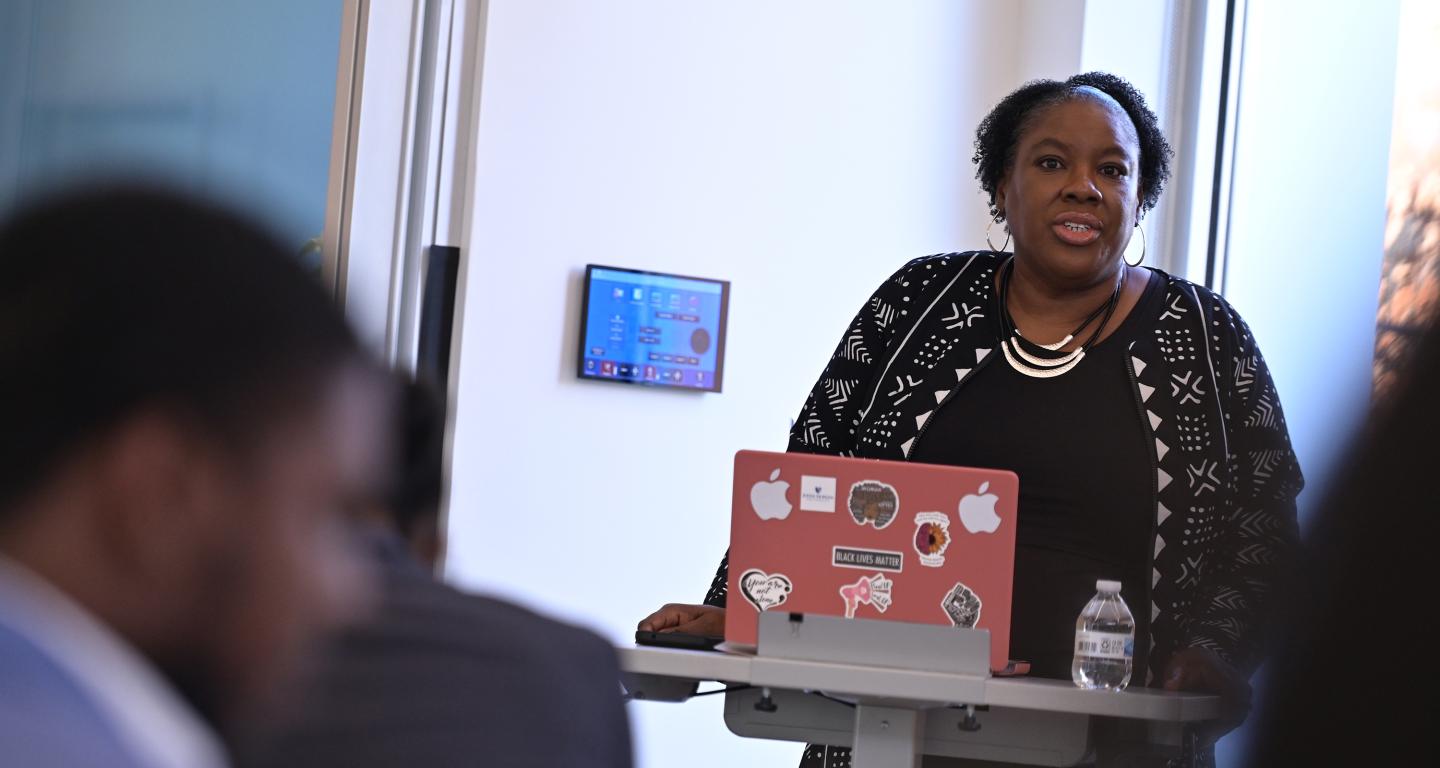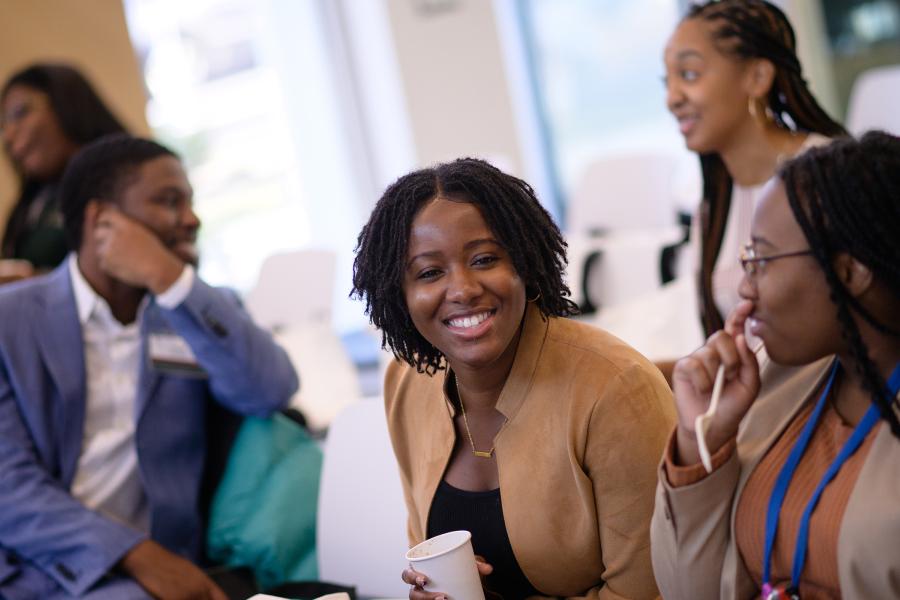Black graduate and doctoral students at Johns Hopkins convened in December for the university's inaugural Black Excellence Conference. With 60 students attending both in-person and virtually, the conference celebrated Black identities in academia and in the workplace and taught students how to build personally fulfilling careers through the principles of life design.
A pioneering form of career services in higher education, life design focuses on providing students with immersive experiences and hands-on learning, such as through internships, applied research, or study abroad programs. Life design also encourages students to pursue the activities and ideas that inspire them. With these principles in mind, the Black Excellence Conference was conceptualized, organized, and hosted through a collaboration between the Black Graduate Student Association, the Whiting School of Engineering Dean's Office, and PHutures, a program within the Office of Integrative Learning and Life Design at Johns Hopkins that provides programs and individualized support to PhD students and postdoctoral fellows across the university. The conference was supported by funding from the PhD Professional Development Innovation Initiative.

Image caption: Katrina Caldwell, vice provost for diversity and inclusion and chief diversity officer for Johns Hopkins, speaks during the inaugural Black Excellence Conference
Image credit: Sam Levitan
The conference sessions focused on professional development from the perspective of the Black student experience. During her plenary address, Shawntay Stocks, assistant director of fellowships and community engagement at Johns Hopkins, opened with a spoken-word poem that challenged the audience to reconsider the cultural and social constructs that govern academia and the modern workplace—standards that for the most part were developed in bygone eras by largely white and male people in positions of power. Her address then focused on her own experiences as a Black woman from Baltimore and navigating the threat of racial stereotyping at work.
"'We all have to do a certain amount of assimilation in the workplace because there is a proper or professional way to behave in the workplace," she said, before adding, "but we want our workplaces to be comfortable, supportive, and culturally affirming." The resulting adaptation in behaviors and patterns of speech is often referred to as "code-switching."
A discussion panel session focused on self-advocacy among Black students and professionals. Breakout sessions explored ways students can bring their authentic selves to the workplace and how students can manage their mental health in grad school, as well as tips for building fulfilling careers and developing leadership qualities. Alicia Wilson, outgoing vice president for economic development and community partnerships at Johns Hopkins University and Johns Hopkins Health System, delivered a keynote address titled "Celebrating Black Excellence: From Surviving to Thriving."
The conference also provided a networking session, granting space and time to Black students at Hopkins to get to know one another and build community.
"The academic journey can often feel isolating for underrepresented minority students," says Habben Desta, a doctoral student in the Department of Chemical and Biomolecular Engineering and a member of the conference planning committee. "Specifically, it can be challenging to persist and feel a sense of belonging in spaces where there are few people who look like you or empathize with your experiences. The Inaugural Black Excellence Conference provided me with both a strong sense of community and the opportunity to make lasting connections with Black graduate students that I otherwise would not have had the opportunity to meet. Sharing a space with successful Black people at the graduate level and above was magnetic, rejuvenating, and inspiring, and I hope to see more events like this at Hopkins."
In addition to Desta, event organizers included Mary Omotoso, a PhD student in biomedical engineering; Brittney Tiffault, a PhD student in the XDBio biomedical sciences program; Darlene Saporu, assistant dean of diversity and inclusion at the Whiting School; PHutures Executive Director Roshni Rao; and Stacey Marks, diversity program manager at the Whiting School.
Posted in University News
Tagged graduate education, integrative learning and life design








